Babette Bach featured at West Coast Woman Newspaper
Babette Bach (West Coast Woman Newspaper – June 2010)
Emotionally bankrupt from litigation, dissatisfied with the legal profession, and needing an avenue to rekindle the flame, Babette became an attorney specializing in elder law. With a background in the medical profession, concern about access to health care, an activist in the AIDS movement, and a caregiver to her late husband, She says she was finally like a duck in water when she began practicing elder law.
Babette Bach says she was emotionally bankrupt from litigation, dissatisfied with the legal profession, and needed an avenue to rekindle the flame. Her life experiences prepared her to be the ideal attorney to join a firm specializing in elder law. With a background in the medical profession, concern about access to health care, an activist in the AIDS movement, and a caregiver to her late husband, Babette said she was finally like a duck in water when she began practicing elder law. Opening her own firm in 2003, her primary areas of practice are asset protection planning, probate planning, and guardianship for the elderly and young disabled persons.
“As people live longer, estate planning is not the only issue. There’s a huge range of issues and challenges that a long life presents.
The subject matter is enormous and challenging, but there’s a difference between elder law and estate planning. Elder law is a holistic way of practicing law. I do traditional estate planning and probate, but elder law encompasses so much more. I’m expected to sit across the table from a client and meet all of their needs.
I must interact with people in the community who manage programs so clients can get maximum benefits.
“Traditionally, elder law hasn’t been embraced by larger law firms that focus on high net worth clients. My average client has assets under $200,000, owns a house, and has a monthly income of $2200. Access to health care has always been one of my passions. I help them plan for their life savings, how they can pay for their own and their spouse’s care, and how to control costs. I need to be knowledgeable about every possible program a person can access. I tell my clients ‘I’m here to partner with you through any transition.’ One client had a stroke, called 911, and then immediately called me. We feel emotionally connected to one another.”
Babette is a Florida Board Certified Elder Law Attorney, nationally certified as an Elder Law Expert by the National Elder Law Foundation, and is chair of the Florida Bar Elder Law Section, the watchdog on legislative issues and case law relating to the elderly and disabled.
She was co-counsel in Gerkin v. Reiger/Levine that required the State of Florida to change its Medicaid policy to provide coverage for Florida’s poorest and most ill. A high-profile case in which she was involved was the Julie Rubenzer breast augmentation case where the patient died after surgery by a Sarasota doctor.
“It is difficult to plan for the last 20 years of life. The stronger the family support system is, the better the aging experience will be. In many cases, I deal with multiple generations and family units which is an ethical landmine.
I determine very quickly who I am representing and make that clear to the family. I usually represent the oldest person, but not always.
Occasionally a child becomes the client.” Sitting in her office on the seventh floor with a view of downtown Sarasota and surrounded by live orchids and plants in the conference room, she exudes passion for her work and compassion for her elderly and disabled clients. To stay current with issues affecting her clients she spends a lot of time studying alone and with a small study group of attorneys who have met for six years and continue to meet twice a month. “Practicing elder law means you have to be an expert in government programs such as Medicare, Medicare Part D, and Medicaid as well as veterans benefits. Now I’m learning how the federal healthcare reform act affects people over 65 and young disabled people.
It’s an embarrassment that these populations need legal help to apply for public benefits.” Due to the current economic conditions, Babette sees families struggling to keep loved ones at home because of the cost when they need specialized care. “People are delaying coming to me and they’re delaying making placement decisions. They need a plan so they can survive financially while at the same time finding adequate care for the ill or disabled spouse.
I’m also very concerned about the care giving spouse since I was in that position myself.” Challenges and frustrations are part of the job. “My challenging days involve financial exploitation cases, right-to-die cases, and watching caregiver burnout. When dealing with exploitive, predatory individuals, it’s hard to get prosecution, but we need to prosecute these cases. I come from a litigation background so I will go to court if I have to. My frustration is with the Department of Children and Families who do a spectacular job but, with a decreasing budget, there are fewer workers for an enormous caseload.” One of five children, Babette was raised in a traditional New Orleans family and enjoyed athletics, competition, boating—everything outdoors. Before Title IX was enacted, she was a nationally ranked track star, but she gave up her hopes of going to the Olympics and enrolled in Duke University. Today she engages in offroad bicycling, weight lifting, swimming, hiking, gardening, and cooking—she calls herself a “foodie”—and nurturing her love of all things French thanks to a year in France during college.
Her late husband, Dr. Michael Bach, taught infectious disease at Harvard Medical School and was on staff at Tufts University and the University of Vermont. Babette recalls, “Being in private practice while being attached to a medical school gave him the opportunity to be a pioneer clinical researcher on the medicine AZT for AIDS patients and eventually becoming an international expert. Early in the AIDS crisis when young people were dying, there was a huge social need which he filled by lecturing at jails, to cafeteria workers, landlords, and in every university and high school in Maine. In our house, Michael had an office on the first floor and we lived on the second floor with our children.”
Babette and Michael founded the first hospice in Portland, Maine, and the Michael C. Bach Clinic in Bradenton continues to serve the HIV and Hepatitis C population. Michael died of melanoma in 1998 leaving Babette and two children, aged 9 and 13. Currently Babette’s son Eric lives in San Diego and daughter, Alexandra, is a movie producer working in New York City.
“It’s brutal to lose someone who adored you. I am darn lucky to have had two wonderful relationships in one life. My partner of 10 years, Rob Patten, a garden builder, and I are avid conservationists and belong to numerous organizations dedicated to conservation. We’re always working on the extensive gardens at our house.”
When asked if she has another aspiration, Babette slowly replies, “I am having a hard time visualizing not doing this. I’m happy to be someone who helps and advocates for other people.”
STORY: Carol Darling



